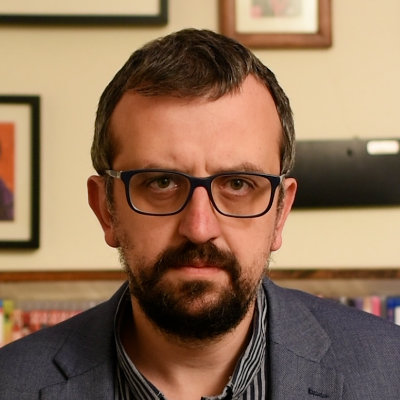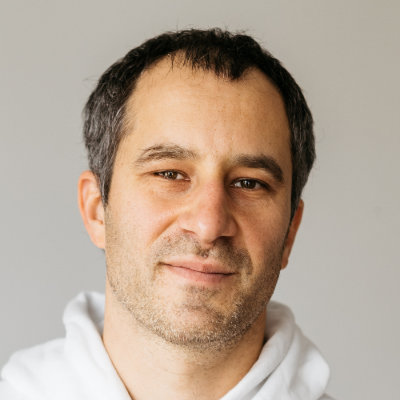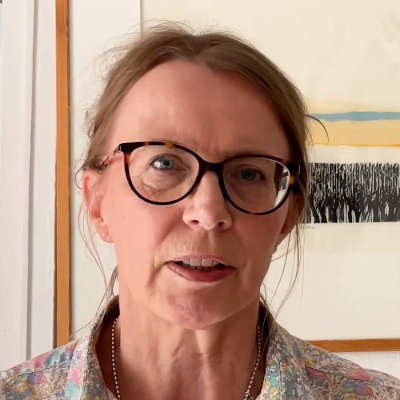Film Criticism - Long Written Forms. Film Analysis, Essay and Review
The first of three blocks of the Asian Cinema Education International Course in Journalism and Film Criticism devoted to long written forms and the analysis and interpretation of Asian films.
The film criticism course is now avaialable. You can watch the webinars at any time and learn in your own pace.
The entire course consists of 40 webinars, divided into three thematic blocks. A module dedicated to film criticism is followed by a course of the festival and journalistic skills. The third part is a story about the history of journalism devoted to Asian cinema.
At the moment the webinars can be watched without registration.
Participation in the course is free of charge. All webinars are conducted in English only – this is the working language of the whole course.
More information about the course
Film criticism - course info
There is a number of different aspects to film analysis and many forms of film criticism. Being a critic does not necessarily mean criticizing. It is all about connecting the dots: the cultural contexts, production background and contexts, or the author’s biography.
The course addresses film criticism from a variety of different perspectives, ranging from visual style, film style, production values, script reading, narrative or character perspectives, to political or socio-economic contexts. Participating in fifteen expert webinars is a unique chance to learn how to analyze and talk about a film without imposing a subjective interpretation, instead of providing the readers with tools allowing them to discover meanings on their own. It is also a collection of practical tips for aspiring film critics, from the structure of the text to pro tips on how to deal with a potential publisher. Active involvement in the course gives you the opportunity to consult your work and ideas with experienced critics and film festival organizers, ask your burning questions, and meet passionate Asian film lovers from around the world!
Lessons
- 1. Introduction - Łukasz Mańkowski
- 2. Film Analysis. Visual Style: Colours & Lighting - Łukasz Mańkowski
- 3. Film Analysis. Visual Style: Framing & Movement - Łukasz Mańkowski
- 4. Film Analysis. Production Values: Setting & Costumes - Łukasz Mańkowski
- 5. Film Analysis. Post-Production: Editing & Sound - Łukasz Mańkowski
- 6. Film Analysis. Political and Cultural Contexts - Łukasz Mańkowski
- 7. Film Analysis. Narrative - Łukasz Mańkowski
- 8. Film Analysis. Characters - Łukasz Mańkowski
- 9. Film Analysis. Auteurs, Genres, and Japanese Cinema - Tom Mes
- 10. Those Crazy Japanese – Avoiding Stereotypes in Writing about Films - Eija Niskanen
- 11. The History of Stereotypes on Asian Characters in the Mainstream Hollywood Cinema - Jasper Sharp
- 12. How to Write an Essay – Marcin Krasnowolski
- 13. How to Write a Review - Panos Kotzathanasis
- 14. Editing Skills: How to Interact with Your Editor-in-Chief. How to Interact with Your Writer. Two Perspectives - Panos Kotzathanasis
- 15. Experts Comment on Participants’ Essays and Reviews - Łukasz Mańkowski
- 16. Experts Comment on Participants’ Essays and Reviews - Panos Kotzathanasis
List of films for your reference
- “Parasite” (Bong Joon-ho, 2019)
- “Shoplifters” (Hirokazu Koreeda, 2018)
- “The Housemaid” (Kim Ki-young, 1960)
- “In the Mood for Love” (Wong Kar Wai, 2000)
- “Funeral Parade of Roses” (Toshio Matsumoto, 1969)
- “The Terrorizers” (Edward Yang, 1986)
- “Marlina, The Murderer in Four Acts” (Mouly Surya, 2017)
- “The Farewell” (Lulu Wang, 2019)
- “An Elephant Sitting Still” (Hu Bo, 2018)
- "Microhabitat” (Jeon Go-woon, 2017)
Assignment for registered participants
Write an essay (2000 words max) or a review (800-1000 words). It can be an essay devoted to one motif or theme, or a review of one film. We encourage you to combine different perspectives (critical, analytical, cultural, academic, etc.). We do not expect classic reviews (although we welcome these as well), we appreciate texts that are a creative synthesis of forms.
The assignment should be based on one of the films from the reference list. If you want to write about another film, contact our expert first.
Deadlines for submitting the course assignments: October 15, 2021
Course experts

Panos Kotzathanasis
A film critic and reviewer specialising in East Asian Cinema. He is the owner and administrator of Asian Movie Pulse, one of the biggest portals dealing with Asian cinema. He is a frequent writer in Hancinema, Taste of Cinema, and his texts can also be found in a number of other publications including SIRP in Estonia, Film.sk in Slovakia, Asian Dialogue in the UK, Cinefil in Japan and Filmbuff in India. Since 2019, he cooperates with Thessaloniki Cinematheque in Greece, curating various tributes, including one to Fruit Chan and one to contemporary Asian cinema.

Marcin Krasnowolski
Freelance journalist, film scholar, and Five Flavours Asian Film Festiwal programmer. Author of many articles about Asian cinema. His interests include films from Korea, Hong Kong, and China, and the flow of inspirations between Asian and non-Asian cinemas. He also works in international TV production.

Łukasz Mańkowski
Łukasz Mańkowski is a film scholar and critic writing about Asian Cinema, Japanese language translator, and festival program consultant. Enrolled in the Ph.D. program at Artes Liberales (University of Warsaw), he prepares an interdisciplinary dissertation on the perception of Japanese New Wave and Avant-Garde Cinema and teaches classes on Asian Film. Łukasz has been selected for many critics talents lab, including 2021 IFFR's Young Critics Programme.

Tom Mes
Tom Mes is the co-founder of the website Midnight Eye and has published two books on director Miike Takashi and one on Tsukamoto Shinya. He also co-authored The Midnight Eye Guide to New Japanese Film. As a film critic he has contributed to publications suchn as Film Comment, Sight and Sound, Rue Morgue, De Filmkrant, Kateigaho and many others. He has provided liner notes and audio commentaries for numerous DVD and blu-ray releases of Japanese films. As a screenwriter Tom worked on Shinji Imaoka’s pink musical “Underwater Love” (“Onna no Kappa”) and as an actor he can be seen in Kiki Sugino’s “Taksu” (“Yokudo”).

Eija Niskanen
Eija Niskanen holds an MA from the University of Jyväskylä (Finland), where she majored in art education and wrote her MA thesis on Akira Kurosawa, and an MA in Critical Studies in Film and Television from UCLA. She has compiled industrial research reports on Japanese film and anime industry, written articles on film festival research and Japanese anime for academic publications, and teaches Asian cinema and animation at the University of Helsinki. She is one of the founders of Helsinki International Film Festival and Helsinki Cine Aasia, and works as the programming director for the latter.

Jasper Sharp
An author, filmmaker and curator known for his work on Asian cinema and the co-founder of the Japanese film website Midnight Eye. His books include The Midnight Eye Guide to New Japanese Film (2004), joint-written with Tom Mes, Behind the Pink Curtain (2008) and The Historical Dictionary of Japanese Cinema (2011). His work has appeared in publications including Sight & Sound, The Guardian, The Japan Times, Kateigaho and Film International, and on numerous home video releases. He has a PhD on ‘Japanese Widescreen Cinema: Commerce, Technology and Aesthetics’, examining the introduction of widescreen cinema technologies to Japan during the 1950s. He is the co-director with Tim Grabham of The Creeping Garden (2014), a documentary about plasmodial slime moulds and currently works as a disc producer for Arrow Films.
Contact
Questions? Please contact us!
education@piecsmakow.pl







